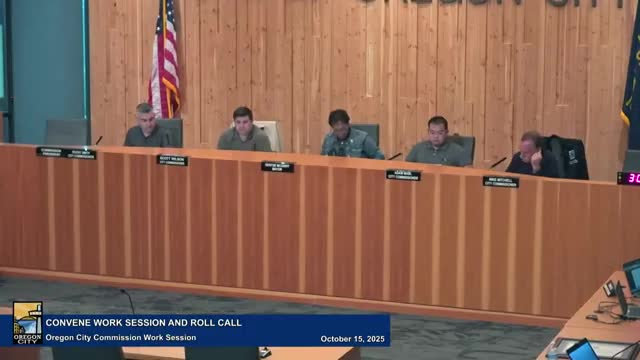Oregon City commissioners urge more information before committing funds to Caring Place project
Get AI-powered insights, summaries, and transcripts
Subscribe
Summary
At an Oct. 15 work session, Oregon City commissioners discussed the Caring Place, a multi-service facility planned at 15th and Main, raising concerns about late engagement, downtown impacts, and whether the city should offer symbolic or financial support; no formal funding decisions were made.
Oregon City commissioners held a work session Oct. 15 to discuss the Caring Place, a multiservice facility proposed for 15th and Main Street that will include a day shelter, clinic space, workforce services and a planned community court presence.
The discussion centered on what, if any, financial or operational support the city should offer. Commissioners repeatedly said they were not consulted early in the project’s development and asked for more information before committing municipal funds or using city tools such as system development charge (SDC) waivers or urban renewal dollars.
Mayor Mary McGriff opened the item as a commission work session and framed the topic as part of the city’s broader goals on homelessness. Multiple commissioners described frustration that the county-led coalition advanced the project to the point of demolition and construction before the city had meaningful input.
Commissioner Michael said the priority now is minimizing downtown impacts and suggested targeted help rather than funding construction: “If there's a way that we can financially support grama or security enhancements to help minimize those impacts, and we can find the money, that's something I think I could support.”
Commissioner Adam said he was uncomfortable providing direct funding or SDC waivers for a project the city did not help design and urged adherence to budgeted processes: “I'm still having a hard time with the concept of us providing financial support, whether that be in the form of direct direct funding or SDC waivers...”
Representatives of the Caring Place and the Homeless Solutions Coalition of Clackamas County told the commission they are raising private and public funds and sought both financial and verbal support from the city. Dan Fowler, speaking for the project, said: “What I what I would like to say in terms of what we really want, is your support. Your verbal support.” John Duke, executive director of the Homeless Solutions Coalition, described the city contribution as largely symbolic: “The money that we're seeking from the city is more symbolic than it is gonna take us over the top.”
Speakers at the meeting and commissioners noted that funding for the project is a patchwork of philanthropic donations and state and county contributions; project leaders said private donations are being matched by a major donor (they described a $7 million match and reported nearly $400,000 raised at a recent gala). Commissioners referenced budget surpluses and urban renewal balances as possible, limited sources of support but several said those funds have competing needs for existing city services and deferred maintenance.
Public-safety concerns and off-site impacts were a recurring theme. Commissioners and staff said on-site security plans would be funded by the project but worried that off-site behavior would fall on Oregon City police and outreach staff. Commissioner Rocky described a pattern where security funded for a shelter site does not address impacts on surrounding blocks: “...it's the off-site impacts that cause the problems. And since they're funded to secure that piece, they don't go past there.” Chief Davis was referenced as the relevant public-safety official to coordinate, and commissioners asked staff to flesh out security, policing and outreach options.
Multiple commissioners said the city already contributes through existing services — a homeless liaison officer, mental health specialists, caseworkers and the recently launched community court — and that those contributions should be considered when evaluating additional support. Several commissioners also urged the Caring Place and the county coalition to seek broader countywide buy-in so other cities bearing fewer service burdens also contribute.
No formal motion or vote occurred. Commissioners directed staff to gather further information on potential city roles, budget constraints and public-safety implications and to schedule another work session for continued dialogue. Project representatives were invited to return with more specifics about security plans, funding gaps and how city support (symbolic or financial) would be used.
The work session closed without a decision on municipal funding. Commissioners said they want to see more data on near-term impacts downtown, exact funding requests and a clearer plan for countywide services (shelter and transitional housing) before making a formal commitment.
